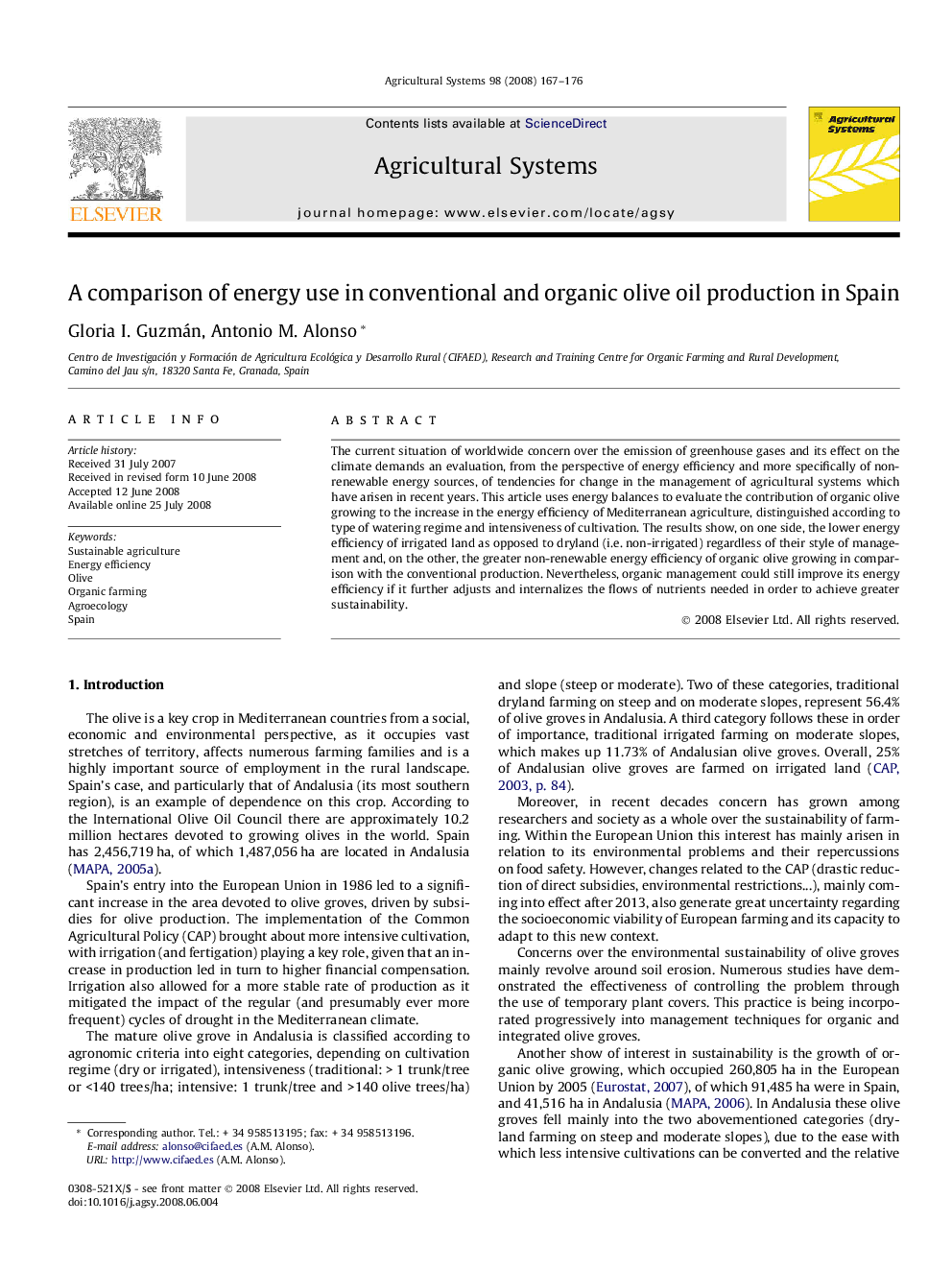| Article ID | Journal | Published Year | Pages | File Type |
|---|---|---|---|---|
| 4491752 | Agricultural Systems | 2008 | 10 Pages |
The current situation of worldwide concern over the emission of greenhouse gases and its effect on the climate demands an evaluation, from the perspective of energy efficiency and more specifically of non-renewable energy sources, of tendencies for change in the management of agricultural systems which have arisen in recent years. This article uses energy balances to evaluate the contribution of organic olive growing to the increase in the energy efficiency of Mediterranean agriculture, distinguished according to type of watering regime and intensiveness of cultivation. The results show, on one side, the lower energy efficiency of irrigated land as opposed to dryland (i.e. non-irrigated) regardless of their style of management and, on the other, the greater non-renewable energy efficiency of organic olive growing in comparison with the conventional production. Nevertheless, organic management could still improve its energy efficiency if it further adjusts and internalizes the flows of nutrients needed in order to achieve greater sustainability.
